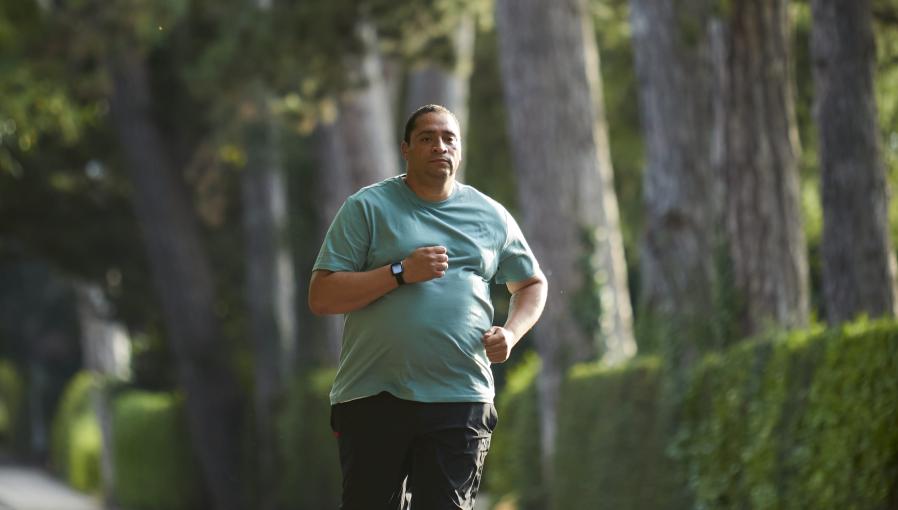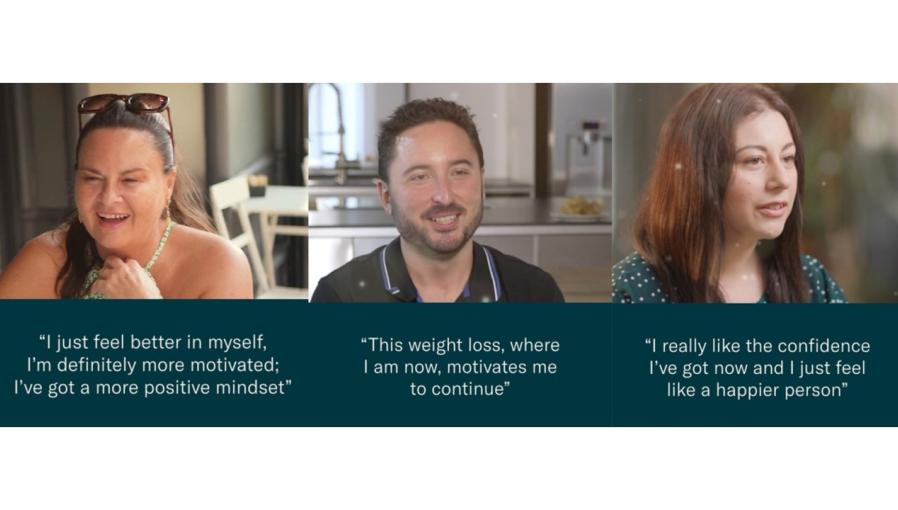Your guide to healthy eating and weight loss during Ramadan

The holy month of Ramadan is observed by Muslims around the world. It’s the most important month on the Islamic calendar and marks the month during which God revealed the first verses of the Quran to the Prophet Muhammad.
During Ramadan, Muslims fast from sunrise to sunset. It’s a period of self-reflection, a time for spirituality and family. The holy month provides a unique opportunity to reconnect with the body, mind and faith.
Weight loss during Ramadan
It can also be a natural starting point for people who want to lead a healthier lifestyle and lose weight. However, fasting during Ramadan doesn’t necessarily result in long-term weight-loss, so it’s important to incorporate Ramadan fasting into a longer-term weight loss plan.
Research shows that many people who are living with excess weight are able to lose weight and fat mass during Ramadan. However, that weight and fat mass loss usually only represents short-term success and is hard to maintain both throughout Ramadan and afterwards. Between 2 and 5 weeks after the end of Ramadan, people often start returning to their pre-Ramadan measurements in both weight and body composition.
It can also come as a surprise to learn that not everyone loses weight during the holy month, despite fasting. In fact, one survey published in a leading nutrition journal found that almost 60% of people actually put on weight during Ramadan.1 Gaining weight despite fasting may sound odd, but it does make sense given some of the factors at play.
For example, weight gain can be the result of overindulgence during the pre-dawn suhoor or the evening iftar. Outside of Ramadan, it’s common to have cravings for food, so it’s no surprise that the temptation to overindulge after a full day of fasting can also be high. Paying attention to what is eaten, when it’s eaten and how it’s eaten can make a big difference to weight management during Ramadan.
Getting the balance just right is possible – millions of Muslims, after all, do it successfully year after year.
Here are our top tips to help you stay healthy – and even lose weight – during Ramadan.
Good eating habits during Suhoor and Iftar
Firstly, when planning for Ramadan, it’s important to acknowledge the difference between fasting for Ramadan and regular or intermittent fasting, which some people use to try and lose weight. Ramadan fasting involves not eating or drinking anything at all between sunrise and sunset, whereas with intermittent fasting, zero-calorie liquids such as water, tea and coffee are usually allowed.
The strict requirements around Ramadan, therefore, make it even more important to plan ahead and ensure a healthy intake of vitamins and nutrients, as well as enough hydration, during the holy month.
Good nutrition is important every day – and Ramadan should be no exception. Here are some healthy eating habits that can help to promote health and wellbeing and weight management during Ramadan.
A healthy Suhoor
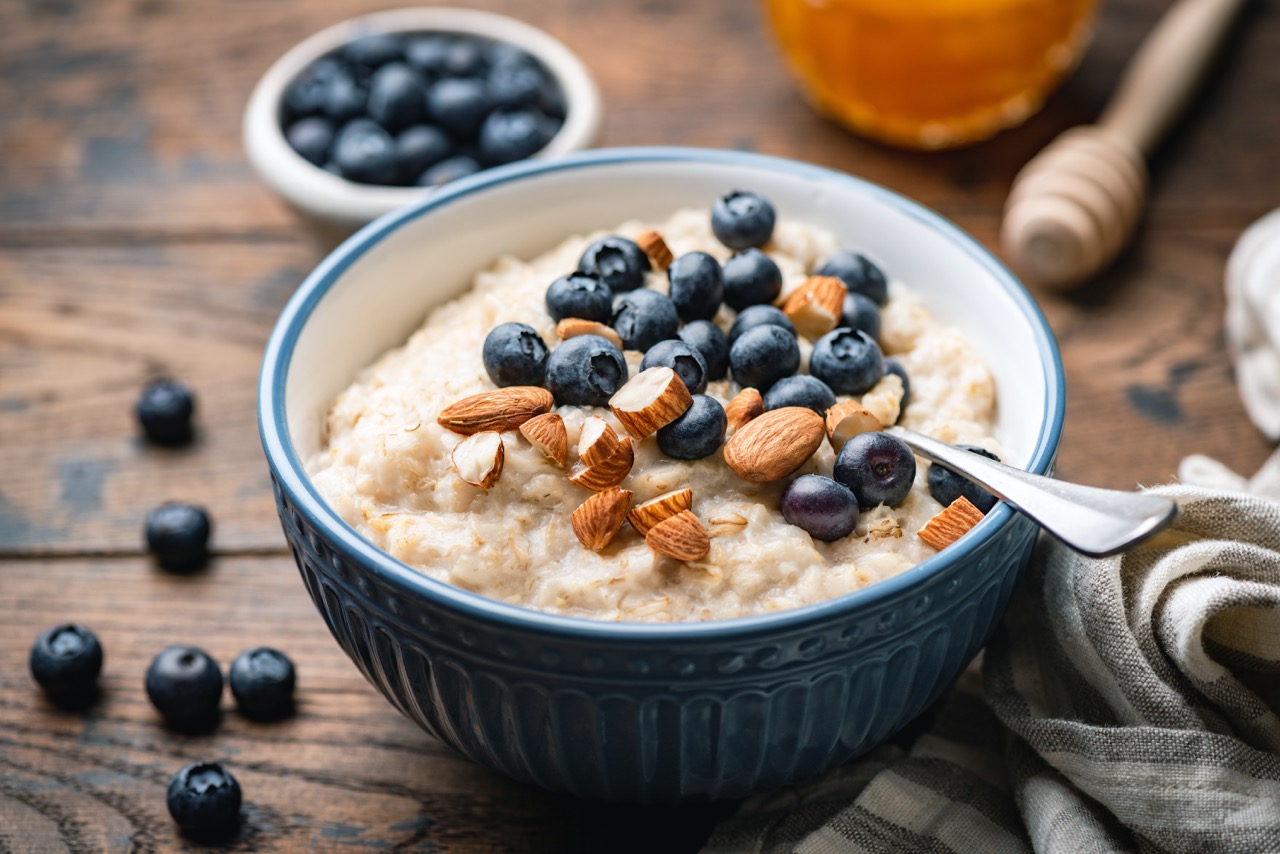
The first step to a healthy day is to make sure you don’t skip suhoor. This meal provides a wholesome start to your day and helps fuel your body with the energy it needs to power through your daily activities without feeling tired or fatigued.
Choose foods that provide sustained energy throughout the day. Aim for whole foods and complex carbohydrates to help maintain keep you feeling fuller for longer. Whole foods and complex carbohydrates are broken down more slowly by the body, providing a steadier source of energy throughout the day. In contrast, processed foods and simple carbohydrates are digested and processed more quickly, often leaving you feeling hungry soon after eating. Some helpful choices include eggs, beans, lentils and chickpeas, oats, and fruits and vegetables. Try also low-fat dairy products like Greek yogurt and foods that include unsaturated fats – unsalted nuts and salmon are good options.
Breaking fast
Breaking your fast in a thoughtful and intentional way can make all the difference in your weight loss and healthy eating goals during Ramadan. Avoid eating a large iftar right after the Maghrib azan. This could result in over-eating. It’s better to break your eating down into smaller portions to give the body time to properly digest the food. Iftar can always be followed by healthy snacks afterwards if required.
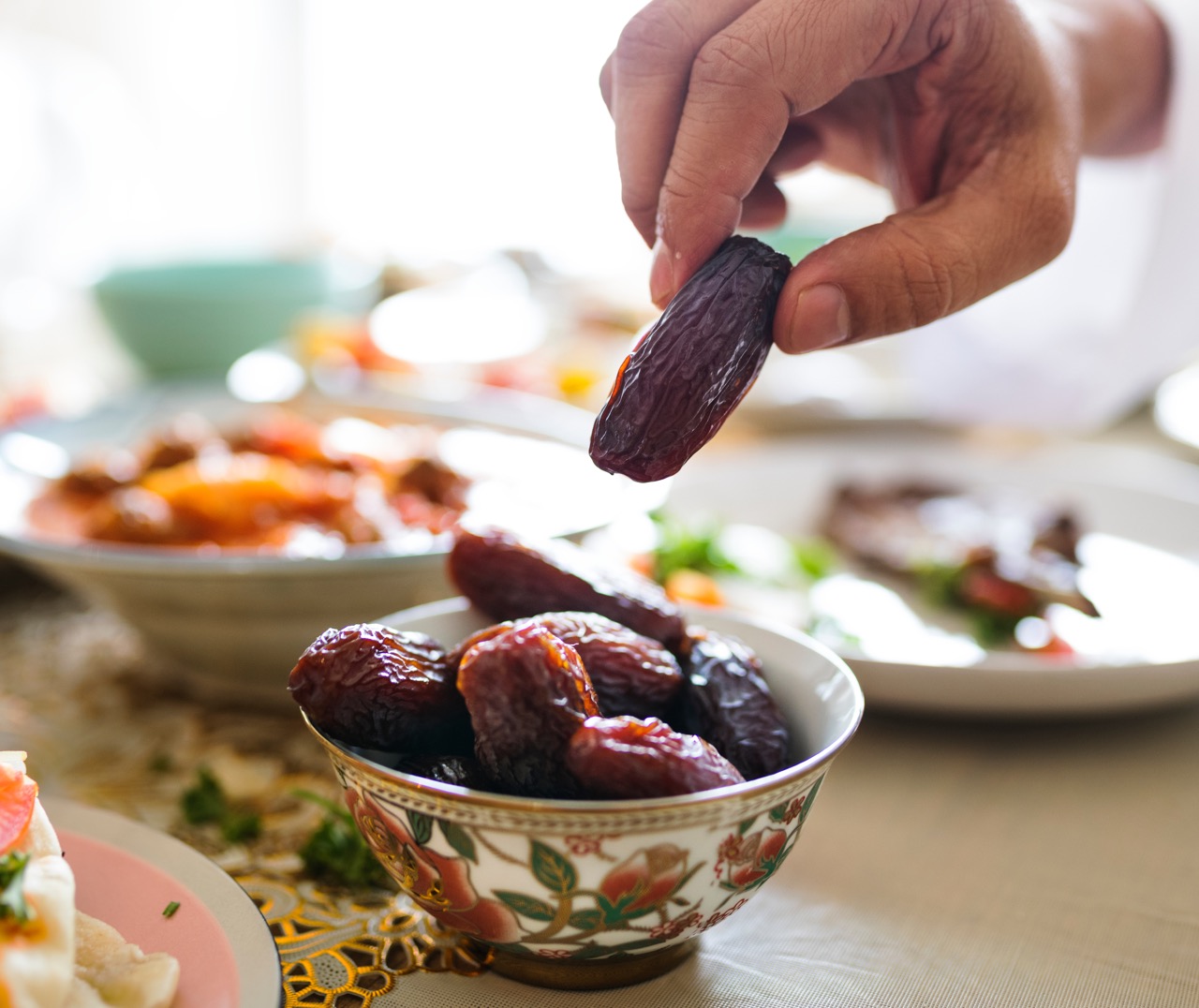
Dried fruits are an excellent snack choice that can provide a natural sugar boost and energy. They are also high in iron and antioxidants. For maximum benefit, pair them with a handful of raw nuts.
For example, some people choose to start their meal after fasting by having a glass of water and a few dates to ease themselves into eating. A small bowl of warm soup is also a helpful choice. They perform the Maghrib prayer before returning for iftar. They then eat a small meal or snack after Tarawih prayers.
Avoid processed or fried foods that tend to have high fat content. Instead, consider incorporating foods that are high in protein, fiber, vitamins, and minerals. For example, lean red meats that are baked or grilled (rather than fried), as well as chicken and fish, are excellent sources of protein. Additionally, choose breads made with whole grains, which are a great source of fiber and provide longer-lasting energy.
Taking a leisurely evening walk with family and friends after iftar can help aid digestion and is a perfect opportunity to wind down and get some fresh air.

Tips for healthy Ramadan fasting and weight loss
- Eat slowly and enjoy each meal: It can be easy to eat iftar quickly to ‘catch up’ on meals missed during a day of fasting. However, slow and mindful eating – enjoying every bite and concentrating on finishing a mouthful before taking another – can help prevent overindulgence.
- Plan ahead: Try to plan and even prepare meals in advance to ensure a healthy and nourishing intake that’s high in vitamins and minerals, including protein. This can be especially helpful during iftar, when family and friends gather together, often resulting in large meals.
- Avoid eating too many salty and sweet foods: As with other times of the year, a balanced diet is best. Too much salt is known to lead to health issues and could lead to dehydration during the daytime if you don’t drink enough fluids. Moderation is key. Sweet foods tend to be high in sugars that are also high in calories, resulting in ‘quick’ energy that doesn’t last long or sustain the body during a fast.
- Try and stay hydrated between iftar and suhoor: Drink plenty of water to replace fluids lost during the fast – especially if the weather is warm. Fluids are essential – fast or no fast. Even a small amount of dehydration can have a negative effect on physical and mental health, and lead to headaches, fatigue and a lack of concentration during the fast. When eating in the evening or early in the morning, it’s important to prioritise hydrating foods. For example, watermelon and cucumber have a high water content; fresh fruit can double as a healthy snack and an energy booster. At the other end of the spectrum is caffeine, which can have a dehydrating effect. Avoiding coffee and tea during Ramadan – or at least reduce the amount consumed can help.
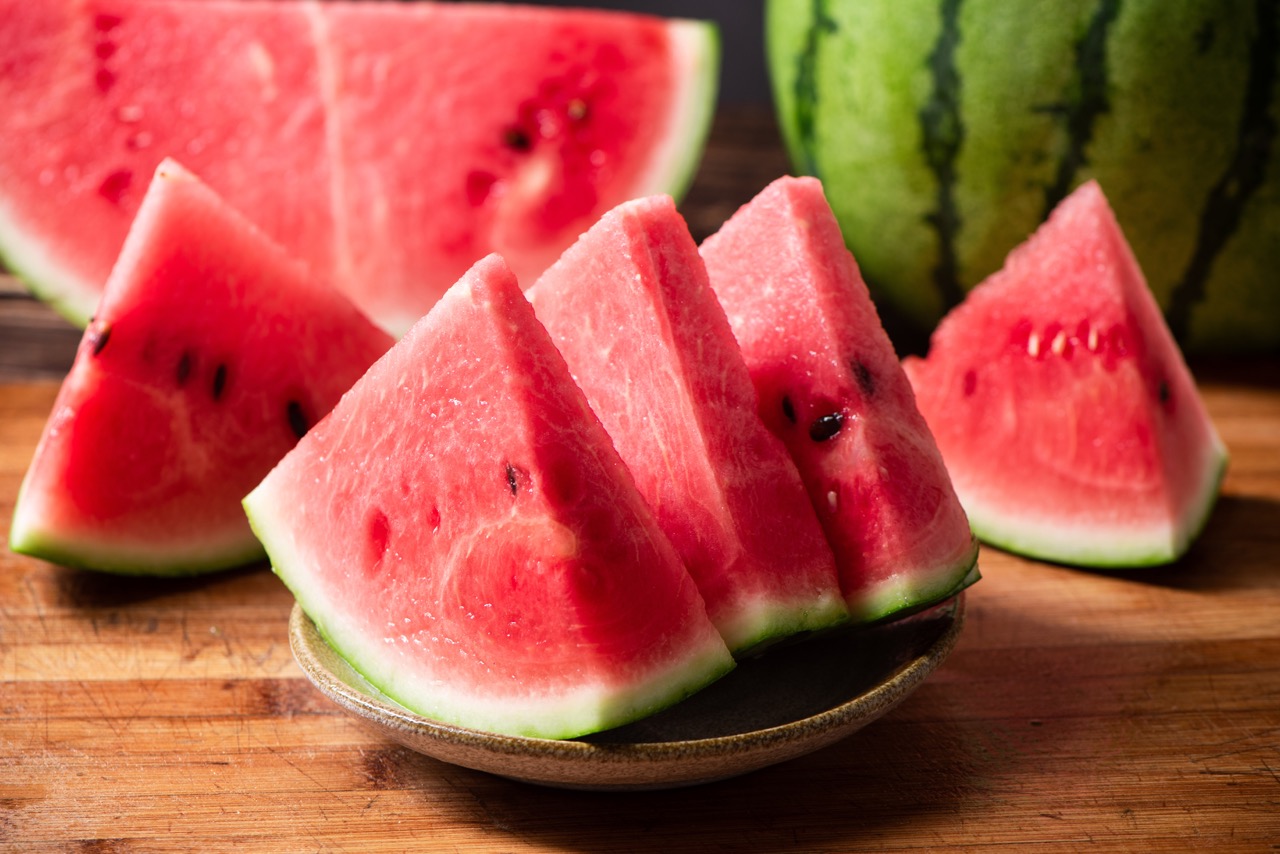
Tips for a good night’s sleep
Poor sleep can have a negative impact on day-to-day life, which can make planning and eating healthy meals more challenging. Fatigue can also affect hormones and result in changes in appetite and hunger, which can make fasting even more challenging than usual.
Getting a good night’s sleep can be difficult during Ramadan, when there are additional family and social events to mark the holy month. Even so, it’s important to try and get into a routine to help your body adjust.
Reducing screen time before bed or having a relaxing bedtime routine can help your body and mind wind down and get you ready for bed.
Some people aim for a minimum of 4 hours’ sleep after Iftar. They then wake for Suhoor and Fajr before getting a few more hours’ sleep, and then actually starting the day.
It can also be a good idea to sneak a ‘nap’ of 20 or 30 minutes in the afternoon if your work or home life is flexible enough to allow it.
Read more about the importance of a good night’s sleep here, and how it is especially important if you’re looking to lose weight.
Staying active during Ramadan
Trying to stay active is important at any time of year – and it’s especially so during Ramadan. Daily walks of just 15 to 20 minutes can work wonders for your circulation, digestion, energy levels and mental health. Short sessions of resistance training can also be a good way of fitting in a burst of exercise on a busy day.
Exercising about 2 hours after iftar, meanwhile, can help to aid digestion and ensure you don’t go to bed feeling too full. While activity levels are key to a healthy lifestyle and to maintaining a healthy weight, it’s important to combine it with mindful eating as well.
And finally …
Planning ahead and developing healthy habits before Ramadan can provide a head start. It can help to get into a healthy routine for suhoor and iftar before the first day of Ramadan even comes around. Try and set realistic goals and patterns of eating that are simple to stick to.
If you’re looking to lose weight, take a holistic, big-picture approach. For extra support, you might like to consider a weight-loss program like the one offered by Allurion, which combines a 16-week gastric balloon with a behavioural change program that focuses on personalised nutrition coaching with digital tracking tools.

Lifestyle patterns are affected by lots of different factors – regardless of Ramadan. It’s important to make eating healthily and exercising regularly a priority all year round. When it comes to diet, your food should be balanced and varied – and if you’re looking to lose weight, Ramadan can be a great time to start the wheels in motion.
The Allurion Program during Ramadan
During this period, you may find the Allurion Program helpful in assisting with portion control and healthy eating habits.
- Having the Allurion Balloon helps you feel fuller for longer, making it easier to manage your food intake and avoid overeating. With smaller portion sizes, you can feel satisfied while still enjoying your favorite meals during iftar.
- Nutritional coaching and support ensure you are getting enough nutrients during iftar as well as guidance on your meal preparations
- The Allurion Connected Scale, the App and Health Tracker keep you accountable and motivated during Ramadan, for instance, getting your physical activity in and getting enough sleep.

If you’d like to learn more, Samira, one of our patients, shares her experience with the Allurion Programme and how the Allurion Balloon has helped her to manage her food intake and develop healthier eating habits. She also talks about the support she received from the program's nutritional coaching and the Allurion Connected Scale, App, and Health Tracker, which helped her to stay accountable and motivated.

Book your free Allurion Program consultation today
With Allurion, you can lose weight safely and successfully. To find out how the Allurion Balloon can work for you, book a free consultation. You can also use our BMI calculator to see if you’re eligible.
If you have any questions, or if you’d like to speak with an Allurion adviser, you can find your nearest clinic here.
REFERENCES
-
Bakhotmah, Balkees Abeed. “The puzzle of self-reported weight gain in a month of fasting (Ramadan) among a cohort of Saudi families in Jeddah, Western Saudi Arabia.” Nutrition Journal, 2011. Nutrition Journal, https://nutritionj.biomedcentral.com/articles/10.1186/1475-2891-10-84#citeas.
Benelam, Bridget. “Hydration and health: a review.” Nutrition Bulletin, vol. 35, no. 2, 2010, p. 191. Wiley Online Library, https://onlinelibrary.wiley.com/doi/full/10.1111/j.1467-3010.2009.01795.x.
Effect of Ramadan Fasting on Weight and Body Composition in Healthy Non-Athlete Adults: A Systematic Review and Meta-Analysis: https://www.ncbi.nlm.nih.gov/pmc/articles/PMC6412279/

